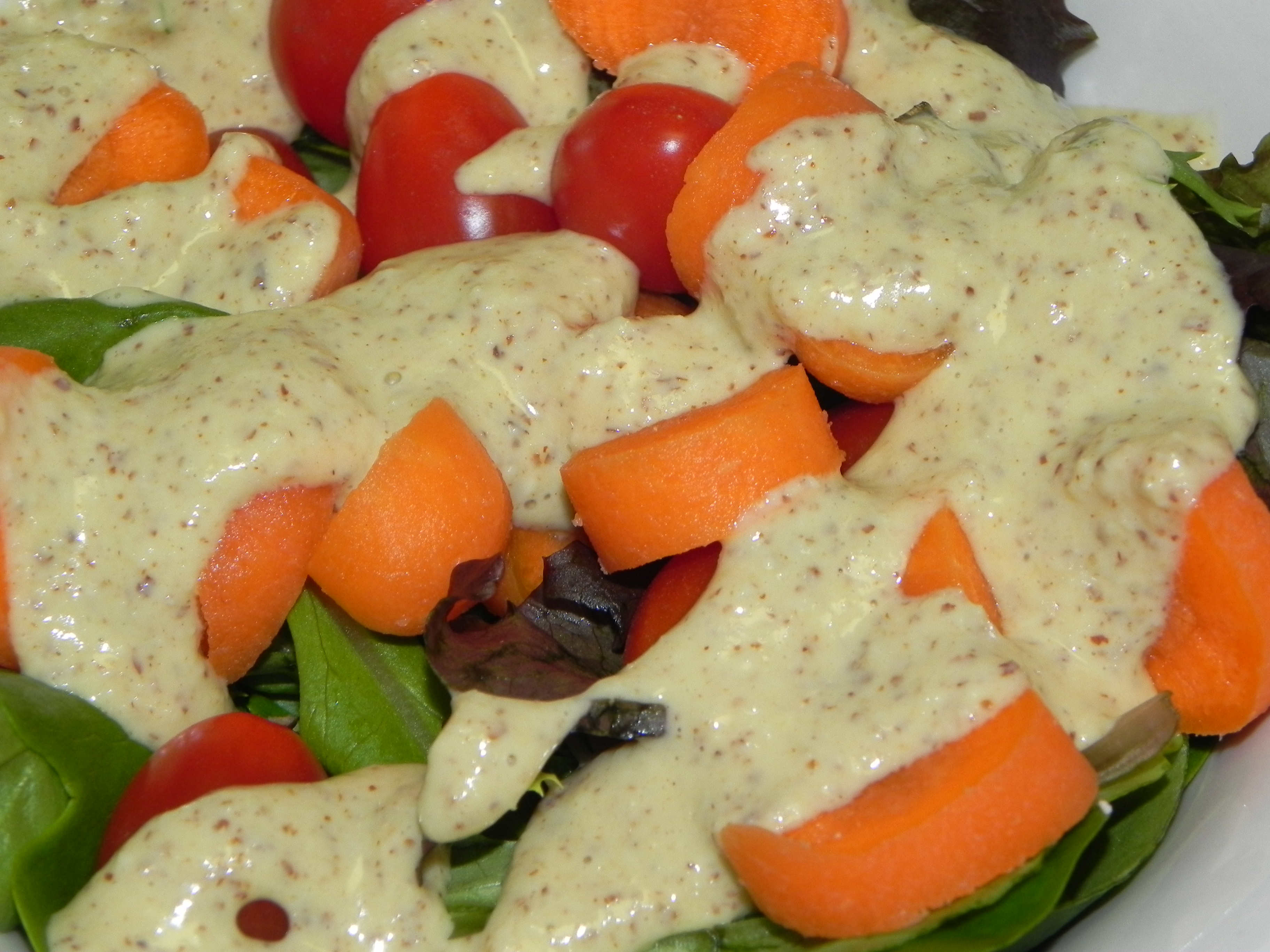Salad dressing is not bad for you as long as it’s constituents are heart-healthy. Most salad dressings are relatively low in fat which not only reduces your calorie intake but also helps you limit consumption of trans as well as saturated fats, both of which are not healthy. However, some salad dressings contain the purest forms of fat such as olive oil and mayonnaise, so it is strongly recommended that you take the time to read the ingredients on the label to make sure you make the right purchases.
Ingredients of Salad Dressing
Regular salad dressings contain a combination of oil, cream, vinegar, corn syrup, sugar, milk and water as well as a few other ingredients and seasonings. However, different varieties use these ingredients in different proportions and it is the proportion that makes the end product healthy or unhealthy. For example one variety of salad dressing may have olive oil as its base ingredient, while the other will have water or vinegar as its first ingredient but the rest of the ingredients will be the same in both. Accordingly, the number of calories per serving in the latter will be lower as compared to the former. In short, by switching between different varieties of salad dressing, you are not necessarily going for a lot of difference.
Fat
Make sure your salad dressing is as fat-free as possible. According to a scientific study, your total fat intake should be 20 to 30 percent of your total daily calorie consumption. Your saturated fat intake should be no more than 7 percent of your total caloric consumption each day, while trans fat consumption should be no more than 1 percent of your calories a day. In terms of grams, you can consume no more than 14 grams of saturated fat and 2 grams of trans fat in a day, so choose your dressings carefully.
Sodium
Besides fat, manufacturers sometimes reduce the amount of sugar, cream, milk and corn syrup as well to make the salad dressing more heart-healthy. However, this also affects the flavour and richness of the dressing, to compensate which, the manufacturers usually increase the sodium content, which is not a good thing. Do compare the amount of sodium on labels of different varieties of dressing and go for the one that is low in sodium.
Bottom Line
While saturated and trans fats are not heart-healthy, monounsaturated or polyunsaturated fat are healthier forms of fat. They not only help lower cholesterol level but also help your body absorb fat soluble vitamins, including Vitamin A, Vitamin D, Vitamin E and Vitamin K. So if your salad dressing contains either of these two forms of fat, you should prefer it over fat-free versions.





No Comment